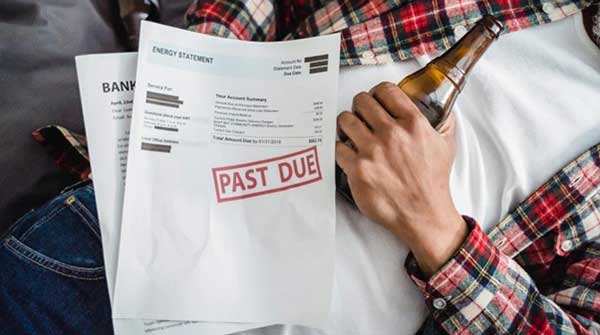The so-called “grocery rebate,” a one-time handout to the needy, won’t do much for Canadians over time
 This federal budget had more leaks than the Titanic. There were so many leaks ahead of its release on Tuesday that most of us already knew what was in it beforehand. Many years ago, ministers of finance would be asked to resign if the secrecy of the budget was breached. These are different times.
This federal budget had more leaks than the Titanic. There were so many leaks ahead of its release on Tuesday that most of us already knew what was in it beforehand. Many years ago, ministers of finance would be asked to resign if the secrecy of the budget was breached. These are different times.
Like last year, this year’s budget did not have a dedicated section for agriculture or food, but it did offer one interesting attention-grabbing nugget. The so-called “grocery rebate,” a one-time handout to the needy, will help some, but only for a very short period. Food inflation will continue to challenge Canadians for quite some time.
It may be time for Canada to develop a program similar to the U.S.’s massive SNAP (Supplemental Nutrition Assistance Program) Food Benefits program, which supports needy families. Commonly known as the Food Stamp program, funding is given to families to lessen the burden of inflation at the grocery store, no matter what might be happening with food prices. Agriculture and Agri-Food Canada could be tasked with developing such a program for Canada. This would be a massive undertaking, but we need to start somewhere.
 |
| Related Stories |
| Trudeau budget: government just keeps on spending
|
| Carbon taxes driving food prices higher |
| Canada Revenue Agency raking in more taxes due to shrinkflation
|
But the “grocery rebate” won’t do much for Canadians over time. This is what happens when you politicize food inflation. It may be good public relations (cheques are real, after all), while fiscal changes that would have a substantial impact are not. But what is of most concern is that pouring an extra $2.5 billion into the economy could actually increase food inflation even more. Stimulating demand only pushes prices – including food prices – in one direction.
The government should have eliminated sales taxes on food when it is not served or processed on-site. With shrinkflation, many food products are no longer defined as groceries by the Canada Revenue Agency but are labelled snacks, which are taxable. Adding HST on food items increases prices by five to 15 percent. It may not be as sexy as giving handouts, but food at retail should not be taxed, period.
But the Liberals clearly read the room right when it came to the federal alcohol “escalator tax,” which automatically increases the tax on beer, wine, and spirits annually across the country by the inflation rate. It was set to increase by 6.3 percent on April 1 of this year. Now, the increase will only be two percent. This was good news for consumers, but most important for restaurants and various other industries involved with these beverages, enjoyed by many Canadians.
Cleantech is the overarching commitment in this budget. Making our food sector greener has been a priority for this government. A portion of the budget is dedicated to biofuels, which represents a win for agriculture. All regions of the country are recognized as having strong potential for further investment. Funding for carbon capture projects is set at $520 million, a welcome recognition of the Prairies’ focus on prioritizing carbon sequestration.
But the budget gave no attention to how the increasing carbon tax will impact food distribution and affordability in Canada by 2030 when the tax itself will reach $170 a metric tonne. As of April 1 of this year, Canada will have the 7th highest carbon tax in the world, according to Statistics Canada.
Some interesting items: The budget has provisions to deal with non-fat surpluses in the dairy sector. Many Canadians have wondered about the unexplained milk dumping incidents and the baby formula shortage. The dairy sector will receive $333 million over 10 years to support research and development of new products using non-fat dairy surpluses. It’s unfortunate that the dairy sector, by far the richest and most resourceful agri-food sector we have in this country, didn’t come up with some of the cash themselves. Heck, they paid $20 million to put the dairy milk logo on the Toronto Maple Leaf jerseys.
Farmers looking for fertilizer options besides those from Russia will have access to some funding, $34.1 million in total. Other than that, there wasn’t much for industrial logistics. And little or no attention was given to international trade and interprovincial barriers other than a brief remark that Ottawa is working diligently to eliminate most of these. Not very reassuring.
The budget was as predictable as it was unexciting. A greener agri-food sector is what we will have, but Ottawa doesn’t seem to care about whether the sector becomes more efficient in keeping costs down, and our food more affordable.
Dr. Sylvain Charlebois is senior director of the agri-food analytics lab and a professor in food distribution and policy at Dalhousie University.
For interview requests, click here.
The opinions expressed by our columnists and contributors are theirs alone and do not inherently or expressly reflect the views of our publication.
© Troy Media
Troy Media is an editorial content provider to media outlets and its own hosted community news outlets across Canada.

